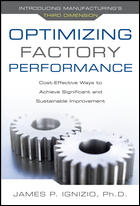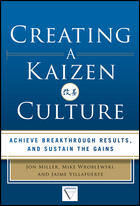I have written about success many times in my blog and in previous columns (see June 2011) and likely will in the future as well. It is a topic that intrigues most people as we work through our personal and professional maze.
Success is mostly individualistic as one person’s idea of success differs from another. In that vein, the principles we’ve chosen to discuss are by no means all-inclusive but our column space won’t permit enough room to discuss in greater detail. However, I think the list which will be further expanded next month provides a fairly good starting point from which to develop a road map for most people. These principles are intended to provide thought-provoking actions no matter your situation.
On a personal note, as I began my career and moved through the workplace maze I gained more experience and observed people who achieved success with a sustained focus on excellence. In time I identified a certain pattern that linked to success – a pattern of certain principles and beliefs. Adopting as many of these as possible, a model for success surfaced (see September 2010). This model helped produce record-breaking results which facilitated a move up a Fortune 50 organization in spite of intense competition. As long as I kept focusing on a few key principles, opportunities were presented and success was eminent.
We should never take anything for granted and we need to learn how to make the most of situations that are presented to us. The following are the first installment of principles for personal and professional excellence which will go a long way in providing a foundation for success. Remember this list is only one of two columns and are not intended to be all encompassing. Use them to form your own model for success.
Believe in yourself. Self-belief is paramount to every success. You need to first believe in yourself to have any chance at success. If you don’t have self-confidence who is going to believe in you? If you have experienced low self-esteem, look back at a time when you achieved something, no matter how small. From there, build your confidence and leverage it as you work to pursue your goals. As you achieve results, your confidence will increase over time, which will create an upward spiraling effect.
Committing yourself. Anything of substance you want to achieve is going to take time and effort. Your more valuable desires tend to be more challenging so they won’t come easy. If you really want something then you are going to stop at virtually nothing to make it happen. If you find yourself losing interest in a particular goal, then you need to rethink your priorities. Maybe that goal is no longer important in your life.
Remain flexible. Flexibility or having ability to adapt is one of the essential pillars of success. Change is inevitable and it’s also an opportunity to fail or succeed. You can take the failure’s position and cower in the face of change. The better approach, however, is to take the winner’s attitude to learn how to deal with change and even turn it into your favor. Be ready for change at all times and develop a friendly relationship with change. You must learn the skill of adaptability.
Don’t fear failure. If you’re like most people you were taught that failing is a bad thing. Failure is almost always placed at odds with success yet without failure few would know the path to achieve success. No one ever did it right all the time and most definitely those who’ve experience success and achieved a level of excellence failed at some point. Thomas Edison, a prolific inventor, said, “I failed my way to success.”
In a previous assignment I was tasked to develop an employee participation culture using idea generation as a vehicle to drive engagement. A key concept in the program was “increase your success potential by increasing your failure rate.” At the core of this concept was to change the thinking of failure as the enemy of success because it really isn’t. You can be discouraged by failure or you can learn from it. We wanted people to ‘think out of the box’ so they were encouraged to make mistakes because that’s where you will generally find success.
Take risks. In order to make taking risks comfortable you have to get over your fear of failure or you’ll not achieve real success. Your personal and professional lives are more fun, exciting, and rewarding when you take risks. At the end of the day, there is ample proof to the ancient adage, “nothing ventured, nothing gained.” However, you need to be calculating the degree of risk as it should not be taken for risk’s sake. Opportunity may knock, but neither does it stand around very long as it generally only knocks once; therefore, be ready to answer the door with enthusiasm for the journey it’ll take you on. The message is to take full advantage of every opportunity.
Don’t miss next month’s Face of Quality column to get the rest of the story as the late Paul Harvey would say.




